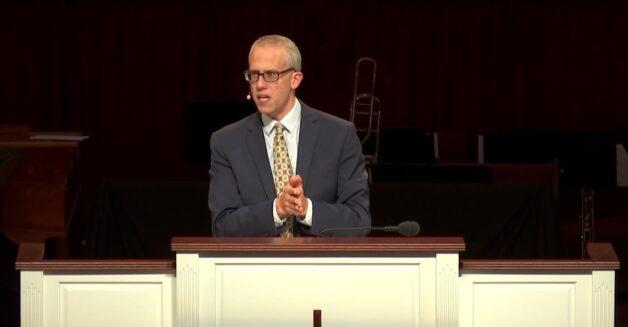
Greg and I have been trying to engage some of the conversation about our book. Believe it or not, we also do many other things besides blog and read blogs. So unfortunately we will not be able to respond to everything everyone wants us to respond to. I don’t have any missions-related posts planned after this one.
But perhaps it would be helpful to think practically about how these things play out on the ground level. I’ll start by giving some examples from my church. At the end I also want to raise some questions for those who want a more expansive definition of the church’s mission.
What We Do
First off, I should be clear that the things we write about in the book are live discussions at URC too. I don’t claim that everyone in my congregation agrees with everything I’ve written in the book. Most haven’t even read the book yet (though I’ve preached on some of these themes).
Having said that, here are some (only some) of things we do and how I think through them.
- One woman in our church heads up a crisis pregnancy center. Another woman has developed an inner-city arts ministry. Both ministries are on our church budget. I am thankful for both organizations. People from our church volunteer and help out at both places. At the same time, these ministries are not under the authority of our elders. They have separate boards. They get funding from many sources. Christians and non-Christians can be thankful for what they do. Their work is not first of all to win converts or make disciples. They try to help save babies and teach art to kids. That’s great. They do good in the community. Our folks who serve try to build relationships and talk about Jesus.
- By contrast, we run a Christianity Explored program out of our church. The ministry is under the authority of the board of elders. CE is a significant investment in time, people, and resources. By God’s grace, we have seen over a hundred non-Christians go through the program in the past year.
- We also host ESL classes at our church. We do this to help the internationals in our community. Dozens, if not hundreds, of them come through our doors every year. We don’t make people go to church before they get English classes. But the ministry is definitely designed as an evangelistic outreach. We invite those who take the classes to check out our Sunday services or try CE. Our leaders talk about the Bible as they teach English. We are very up front about who we are. We want to help them and love them. We also want them to hear the gospel.
- We have a good relationship with the Lansing Rescue Mission. The folks there have a heart for evangelism and discipleship. For the past several years we’ve had at least one man from the Mission join our church each year. We try to fold these guys into small groups and give them mentors. We may help with physical needs if appropriate. We also support the Mission in our church budget.
- About 17% of our budget goes to missions. Many of these people work explicitly in ministry/discipleship/evangelism. Some are tentmakers. They desire to make Jesus known even if it takes years or decades. We support missionaries who partner with local churches in meeting agricultural or developmental needs. We are thankful for this important work and also take seriously that our missionaries should be theologically sound and desire to tell others about Christ. We don’t try to tell our missionaries how, where, or when they should do that. But we want to know they believe in the lostness of sinners, the need for a Savior, and are eager to find opportunities to make disciples.
- We have a group of folks at our church who are especially passionate about mercy ministry. They’ve participated in a program that “adopts” a single mom and helps her get on her feet again. At the outset of the program we talked about desired outcomes. If this program is a success the woman will find a job, purchase a home, learn to balance a budget, etc. But beyond all that we hope she will more mature in following Jesus Christ and will be involved in a local church (not necessarily ours).
- Our individual members support many other ministries and causes–some focus on disciple-making, some address poverty issues in the name of Christ, some do good things in the community and may not be discernibly Christian at all. People also live out their faith (sharing it too) and love their neighbors out of their homes and in their careers.
- We also have a terrific diaconate which responds to physical needs in our congregation and responds with compassion and wisdom to requests that come from outside our congregation.
- For several years we’ve sent out a work trip to the Gulf during the spring. Our folks rebuild homes, teach in schools, and work with local churches. We learn from these trips and grow ourselves. Our people always come back most encouraged by the conversations they had with others in the community and in the churches. We send out students on similar trips–some of which are more explicitly evangelistic.
- Our mission priority on a local level is definitely the campus of Michigan State University, in particular undergraduate students. Our church was founded to be an outreach to MSU. Campus ministry is at the core of our identity and calling, and evangelism and discipleship (within the context of a local church) form the heartbeat of our outreach to students. While we are thankful for many strong parachurch organizations on campus (and welcome those students and leaders into our church with open arms), our ministry is specifically designed to be a church-based campus ministry. As such we provide staffing, resources, accountability, integration, and oversight for our campus work.
What I Hope We Don’t Do
Those are some of the things we do. Here are some of the things I hope we avoid:
- Focusing a lot of our energies, resources, and people on good effort that will be well-supported by governments and non-Christians.
- Partnering with teams or agencies that do not allow evangelism.
- Running social services for the community out of our church.
- Confusing relief with community development.
- Undertaking charitable projects or missions endeavors that make us feel good but don’t actually help those we serve and may actually take away their dignity or foster dependence.
- Supporting missionaries who do not believe the gospel, understand the gospel, or who will not winsomely and courageously share the gospel with others.
- Giving to groups and people that do not hold to the fundamentals of historic evangelical theology.
Summing Up
Our church is blessed to have an experienced missions committee working hard on these issues. We also have the privilege of supporting a number of truly outstanding missionaries. I’d like our church to do more with church planting and evangelism among unreached peoples, but this is not to detract from the many fine missionaries we already support.
On a local level, I hope our church members will always be a faithful presence in their neighborhoods and industries.
I’m glad we will sometimes come together to respond to a particular need in the community or on the other side of the world.
I pray we will focus our energies and resources on making disciples in our church, through our church into the community, and from our church to ends of the earth.



